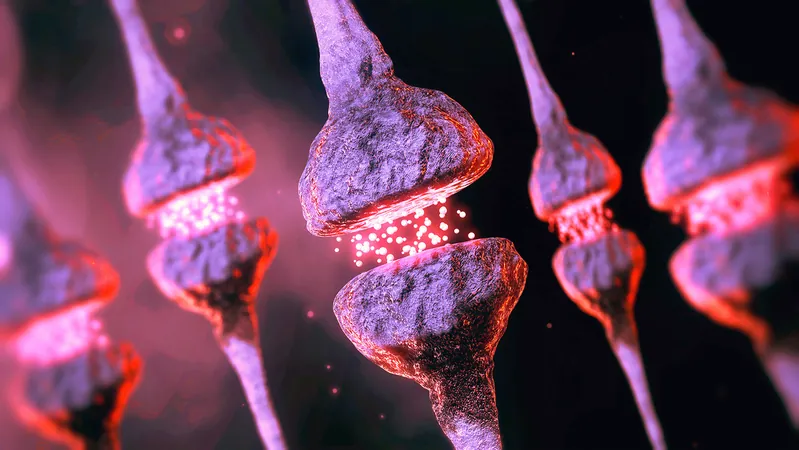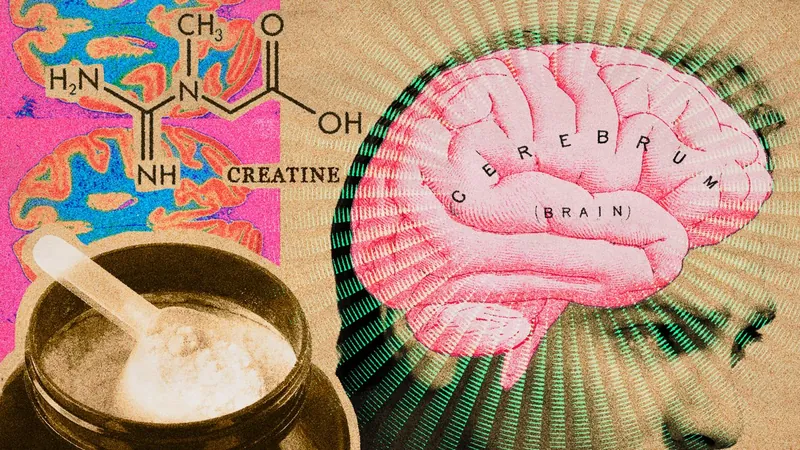
Unlocking the Brain's Potential: New Insights on Synaptic Plasticity and Therapeutics
2025-07-13
Author: Yu
The Key to Cognitive Function: Understanding Synaptic Changes
Our brains are incredible machines capable of learning and memory, but these processes depend on rapid and precise changes in proteins at synapses. A fresh investigation sheds light on how these modifications occur at the molecular level, focusing on a brain protein called cypin.
Revolutionary Findings from Rutgers University
In a groundbreaking study published in *Science Advances*, researchers from Rutgers University unveiled that cypin plays a pivotal role in modulating synaptic content through a process known as K63-polyubiquitination. This research opens up potential pathways for developing novel therapeutic approaches to brain-related conditions.
Lead researcher Dr. Bonnie Firestein emphasized, "Our findings suggest that therapies targeting cypin may enhance the connections between brain cells, potentially improving memory and cognitive abilities." This insight underscores the importance of cypin in neuronal signaling.
The Mystery of Polyubiquitination Unraveled
While ubiquitination is largely recognized for marking damaged proteins for degradation, this study reveals the lesser-known but critical role of K63-polyubiquitination in neuronal health. The team examined two types of ubiquitination—K48 and K63—and discovered that K63-polyUb is crucial for modulating neuronal proteins, impacting both lab and live environments.
K63-Polyubiquitination: An Untapped Resource in Neuroscience
Traditionally associated with cancer research, K63-polyubiquitination’s implications in the brain have remained largely unexplored. This study indicates that cypin’s regulation of K63-polyUb significantly influences protein composition in neurons, illuminating a new angle in the study of neurobiology.
Boosting Brain Connections: The Role of Cypin
When examining synaptic plasticity—the ability of synapses to strengthen or weaken over time—researchers found that increasing cypin levels significantly enhanced the presence of critical proteins like PSD-95 and glutamate receptor subunits, which are essential for quick neuronal communication. These insights pave the way for combating synaptic dysfunction related to neurodegenerative diseases.
A Therapeutic Future: Cypin in Action
Despite being basic research, these discoveries have vast clinical implications. Dr. Firestein argued, "Cypin could be pivotal in crafting treatments for neurodegenerative and cognitive disorders, as well as for brain injuries." In an exciting extension of this research, the Firestein lab is investigating cypin as a target for aiding recovery in spinal cord injuries, potentially restoring lost motor functions.
A Glimpse Ahead: Transforming Science into Solutions
As research continues, the profound implications of cypin on both cognitive function and recovery from injuries signal a new frontier in neuroscience. The exploration of this protein could revolutionize how we approach treatments for various brain-related ailments, promising hope for enhanced recovery and cognitive enhancement.



 Brasil (PT)
Brasil (PT)
 Canada (EN)
Canada (EN)
 Chile (ES)
Chile (ES)
 Česko (CS)
Česko (CS)
 대한민국 (KO)
대한민국 (KO)
 España (ES)
España (ES)
 France (FR)
France (FR)
 Hong Kong (EN)
Hong Kong (EN)
 Italia (IT)
Italia (IT)
 日本 (JA)
日本 (JA)
 Magyarország (HU)
Magyarország (HU)
 Norge (NO)
Norge (NO)
 Polska (PL)
Polska (PL)
 Schweiz (DE)
Schweiz (DE)
 Singapore (EN)
Singapore (EN)
 Sverige (SV)
Sverige (SV)
 Suomi (FI)
Suomi (FI)
 Türkiye (TR)
Türkiye (TR)
 الإمارات العربية المتحدة (AR)
الإمارات العربية المتحدة (AR)